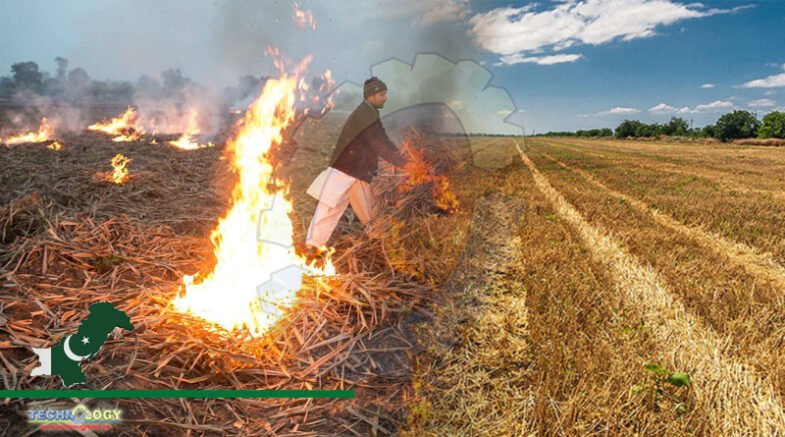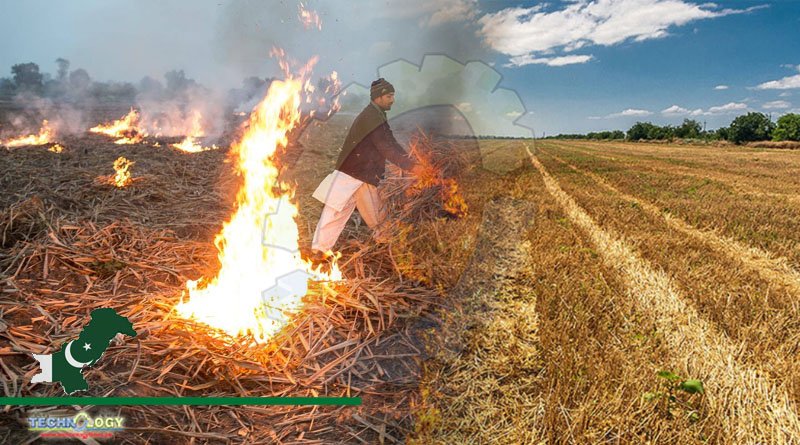Widespread burning of crops residue has become a major reason of pollution in winter and growers must avoid it.

Widespread burning of crops residue has become a major reason of pollution in winter and growers must avoid it, said Political Assistant to Chief Minister Punjab, Iftikhar Ahmed Buttar.
He said that this practice hugely affected the environment ,as well as health of people. “There is an urgent need of initiating integrated management of crops residue including its use as fertilizer, cattle feed, bio-energy, substance for growing mushrooms and industrial use etc “, he suggested.
He regretted that burning of crop residue was a common practice in Pakistan, India and some other countries as well. Mere punitive actions were not enough to control the situation, he added.
Between October and January every year, out of 8.5 million tonnes of rice residue produced, at least 3.6 to 5 million tons is burnt to clear the fields for sowing wheat. Burning stubble remains the fastest and most affordable way to prepare fields for subsequent planting seasons.
This practice has led to air quality impairment, smog, haze, heat waves, and different health problems. These could be avoided by adopting sustainable crop residue management practices (SCRMPs) and enabling farmers to engage in SCRMPs.
Around this time, Punjab witnesses a significant deterioration in air quality, while Pakistan’s largest urban centres, Lahore and Karachi already rank amongst the most polluted cities of the world. The sharp increase in air pollution is caused by crop burning fires along with thermal inversion – a meteorological phenomenon in which particulate matter and other pollutants, trapped in air, mix with condensed water vapour to form smog.
Earlier, as part of measures to prevent smog, the Punjab government decided to impose Section 144 across the province to ban the Burning of crops residue and garbage.
To control the smog during winter season in Punjab, it is imperative to take preemptive measures against smog, all the relevant departments should carry out collective efforts to mitigate the impact of pollution. The Environmental Protection Department (EPD) secretary should prepare a framework for the prevention of smog.
